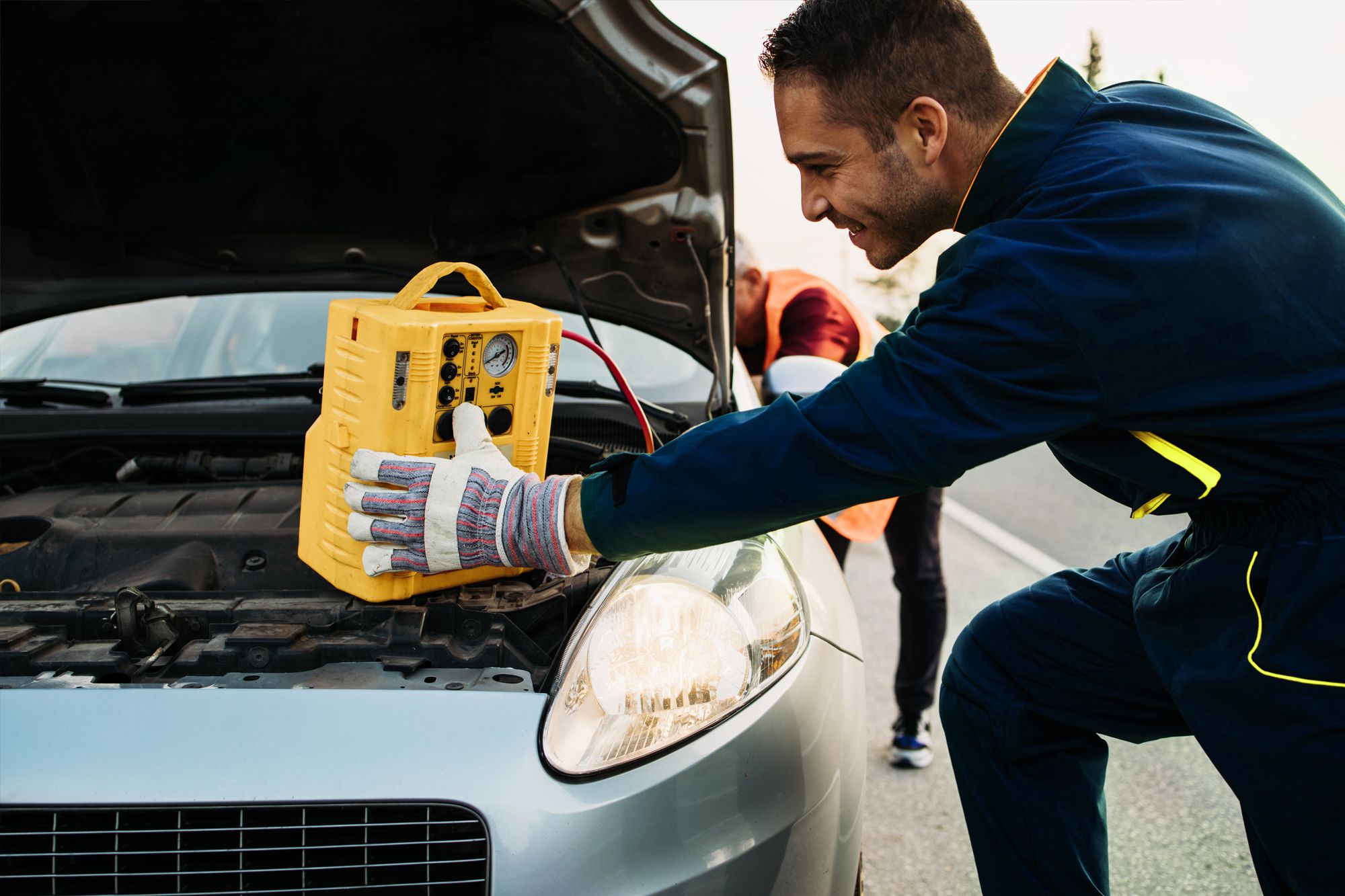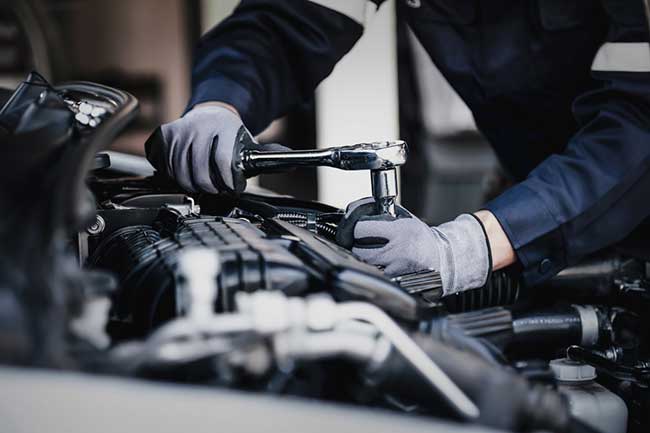All Categories
Featured
When your automobile gets too hot, it can feel like a significant emergency situation, however remaining tranquil and adhering to the appropriate steps can prevent severe engine damage and aid get you back when driving securely. In this article, we'll discover what to do if your automobile overheats and supply preventative pointers to decrease the danger of overheating in the future.
What to Do If Your Auto Gets too hot. Pull Over to a Safe Place The first and most vital step if your auto begins to overheat is to draw over to a safe area immediately. Switch on your danger lights and direct your car to the shoulder or right into a vehicle parking whole lot. Maintaining your car running while it's overheated can create serious damages to the engine, so it's critical to shut the engine off today.
Allow the Engine Cool Off Once you have actually safely stopped, permit the engine to cool down. You should never ever try to open up the radiator cap while the engine is still warm, as the launch of heavy steam or hot coolant can create burns. Wait at least 15-20 minutes to permit the engine temperature to go down to a much safer degree before proceeding.
![]()
Examine the Coolant Level After the engine has actually cooled, examine the coolant levels by inspecting the reservoir or radiator. Leading it off with a mixture of coolant and water (as defined by your car's producer) if it's low. Always use caution when opening up the coolant tank, as stress may have built up.
Try To Find Noticeable Leaks While you await the engine to cool down, visually check the radiator, pipes, and coolant reservoir for any type of noticeable leakages or fractures. A leaking radiator or tube is a common source of getting too hot. If you discover a significant leak, it's much better to call a tow service than risk driving even more and triggering extra damages.
Reactivate the Engine After permitting the engine to cool down and making certain the coolant is rounded off, start the engine and check the temperature scale. If the temperature level remains to rise swiftly, it's finest to close the engine off and require roadside aid or a tow to the local technician.
![]()
Just How to Stop Getting Too Hot in the Future. Routinely Check Coolant Levels One of the easiest ways to stop getting too hot is by keeping the ideal level of coolant. With time, coolant can evaporate, so routinely examine the coolant levels in the tank. Low coolant degrees can trigger the engine to get too hot swiftly, so top it off as needed.
Evaluate the Radiator The radiator plays a critical function in keeping the engine cool. Periodically check the radiator for any kind of clogs, dust, or debris that can obstruct airflow. If you observe any kind of indications of damage, such as corrosion or leakages, have it repaired or replaced as soon as feasible.
Replace the Thermostat and Water Pump A malfunctioning thermostat or water pump is a typical reason for getting too hot. The thermostat regulates the flow of coolant, while the water pump flows it through the engine. It can avoid correct air conditioning if either part is defective. When required., have your mechanic evaluate these parts frequently and replace them.
Flush the Cooling System Gradually, coolant can degrade and end up being ineffective, creating a build-up of particles in the system. Purging the air conditioning system every 30,000 miles, or as suggested in your car's handbook, assists to remove any sludge or accumulation and makes sure the cooling system is working appropriately.
Monitor the Problem of the Tubes The hoses in your car's air conditioning system can wear or split in time. Check the pipes for any kind of signs of wear, such as bulging, cracks, or leaks, and change them if required. Stopping coolant leakages can go a lengthy method in staying clear of overheating.
![]()
Drive Sensibly Hostile driving, such as speeding up quickly or driving at broadband, puts added pressure on your engine and its cooling system. Try to drive at modest rates, especially on hot days or when driving on high slopes, to decrease the opportunities of overheating.
Avoid Overwhelming Your Vehicle Carrying too much weight in your automobile places stress and anxiety on the engine and cooling system. Always be mindful of your lorry's weight limit, particularly if you're transporting hefty loads, towing a trailer, or driving fars away in heat.
Final thought. An overheating vehicle can be a frightening experience, however recognizing how to respond and stop it can save you time, money, and potential engine damages. Constantly inspect your coolant degrees, inspect key parts like the radiator, thermostat, and tubes, and adhere to a routine maintenance routine. By remaining on top of your vehicle's air conditioning system, you can reduce the threat of overheating and delight in a smoother, safer driving experience.
What to Do If Your Auto Gets too hot. Pull Over to a Safe Place The first and most vital step if your auto begins to overheat is to draw over to a safe area immediately. Switch on your danger lights and direct your car to the shoulder or right into a vehicle parking whole lot. Maintaining your car running while it's overheated can create serious damages to the engine, so it's critical to shut the engine off today.
Allow the Engine Cool Off Once you have actually safely stopped, permit the engine to cool down. You should never ever try to open up the radiator cap while the engine is still warm, as the launch of heavy steam or hot coolant can create burns. Wait at least 15-20 minutes to permit the engine temperature to go down to a much safer degree before proceeding.

Examine the Coolant Level After the engine has actually cooled, examine the coolant levels by inspecting the reservoir or radiator. Leading it off with a mixture of coolant and water (as defined by your car's producer) if it's low. Always use caution when opening up the coolant tank, as stress may have built up.
Try To Find Noticeable Leaks While you await the engine to cool down, visually check the radiator, pipes, and coolant reservoir for any type of noticeable leakages or fractures. A leaking radiator or tube is a common source of getting too hot. If you discover a significant leak, it's much better to call a tow service than risk driving even more and triggering extra damages.
Reactivate the Engine After permitting the engine to cool down and making certain the coolant is rounded off, start the engine and check the temperature scale. If the temperature level remains to rise swiftly, it's finest to close the engine off and require roadside aid or a tow to the local technician.

Just How to Stop Getting Too Hot in the Future. Routinely Check Coolant Levels One of the easiest ways to stop getting too hot is by keeping the ideal level of coolant. With time, coolant can evaporate, so routinely examine the coolant levels in the tank. Low coolant degrees can trigger the engine to get too hot swiftly, so top it off as needed.
Evaluate the Radiator The radiator plays a critical function in keeping the engine cool. Periodically check the radiator for any kind of clogs, dust, or debris that can obstruct airflow. If you observe any kind of indications of damage, such as corrosion or leakages, have it repaired or replaced as soon as feasible.
Replace the Thermostat and Water Pump A malfunctioning thermostat or water pump is a typical reason for getting too hot. The thermostat regulates the flow of coolant, while the water pump flows it through the engine. It can avoid correct air conditioning if either part is defective. When required., have your mechanic evaluate these parts frequently and replace them.
Flush the Cooling System Gradually, coolant can degrade and end up being ineffective, creating a build-up of particles in the system. Purging the air conditioning system every 30,000 miles, or as suggested in your car's handbook, assists to remove any sludge or accumulation and makes sure the cooling system is working appropriately.
Monitor the Problem of the Tubes The hoses in your car's air conditioning system can wear or split in time. Check the pipes for any kind of signs of wear, such as bulging, cracks, or leaks, and change them if required. Stopping coolant leakages can go a lengthy method in staying clear of overheating.

Drive Sensibly Hostile driving, such as speeding up quickly or driving at broadband, puts added pressure on your engine and its cooling system. Try to drive at modest rates, especially on hot days or when driving on high slopes, to decrease the opportunities of overheating.
Avoid Overwhelming Your Vehicle Carrying too much weight in your automobile places stress and anxiety on the engine and cooling system. Always be mindful of your lorry's weight limit, particularly if you're transporting hefty loads, towing a trailer, or driving fars away in heat.
Final thought. An overheating vehicle can be a frightening experience, however recognizing how to respond and stop it can save you time, money, and potential engine damages. Constantly inspect your coolant degrees, inspect key parts like the radiator, thermostat, and tubes, and adhere to a routine maintenance routine. By remaining on top of your vehicle's air conditioning system, you can reduce the threat of overheating and delight in a smoother, safer driving experience.
Latest Posts
A Smooth Shower Room Remodel Experience
Published Apr 21, 25
1 min read
Fashionable Convenience Begins With the Ground Up
Published Apr 21, 25
1 min read
Save Big with Montclare Auto Repair Offers - Grab Yours Today!
Published Apr 21, 25
2 min read